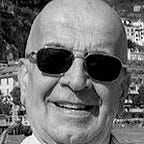“Where they burn books, they will ultimately burn people also”
December 13, 1797: Heinrich Heine is born. This German poet once observed that wherever books are burned, people are burned, too, in the end. His words turned out to be prophetic, as his own books would be burnt by the Nazis during the 1930s.
Heinrich Heine was a Jewish born poet who became a highly controversial figure in German literature and was also something of a visionary. He quite clearly prophesied the terrible times to come for the Jewish people in a play that he wrote in 1821. In “Almansor” he wrote about the burning of books for political or religious reasons and the line:
“Das war ein Vorspiel nur, dort wo man Bucher verbrennt man auch am Ende Menschen” translates as “That was but a prelude; where they burn books, they will ultimately burn people also”.
Over a hundred years later Nazi party activists raided the Institut für Sexualwissenschaft and burned thousands of books on Berlin’s Opernplatz, including some of the works of Heinrich Heine.
Christian Johann Heinrich Heine was one of the most significant German poets of the 19th century. He was also a journalist, essayist, and literary critic. He is best known outside Germany for his early lyric poetry, which was set to music in the form of Lieder (art songs) by composers such as Robert Schumann and Franz Schubert. Heine’s later verse and prose is distinguished by its satirical wit and irony. His radical political views led to many of his works being banned by German authorities. Heine spent the last 25 years of his life as an expatriate in Paris.
Heinrich Heine died on 17 February 1856, aged 58. His body was buried at the Montmartre cemetery in Paris.
